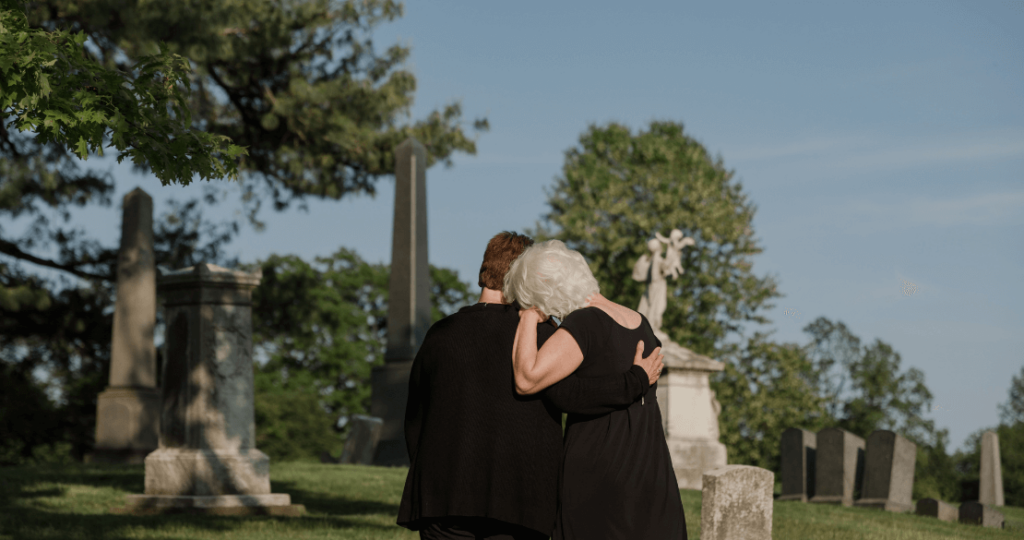In the funeral service industry, understanding and addressing grief is not just an additional service; it’s a fundamental responsibility. This blog post explores how integrating grief counseling into funeral services can provide significant support to bereaved families, while also enhancing the professional role of funeral directors and mental health professionals.
Understanding Grief
Grief is a complex emotional response to loss, often encompassing a wide range of feelings such as sadness, anger, confusion, and relief. It unfolds in various stages, famously defined by Elisabeth Kübler-Ross, including denial, anger, bargaining, depression, and acceptance. However, it is important to note that not everyone will experience all stages, nor in a linear order. Each individual’s grief process is as unique as their fingerprint, influenced by personal experiences, cultural background, and the nature of the loss.
For funeral directors and mental health professionals, grasping the nuances of grief is crucial. It enables them to tailor their services and support systems effectively, ensuring they meet the specific needs of those navigating this difficult time. Recognizing that grief is non-linear and deeply personal helps professionals provide compassionate care and establish meaningful connections with the bereaved.
The Role of Grief Counseling in Funeral Services
Grief counseling offers a structured approach to help individuals cope with loss, facilitating the healing process. At its core, grief counseling provides a safe space for individuals to express their emotions, explore their feelings, and begin to process their loss. This therapeutic support is integral to funeral services, offering a bridge between honoring a loved one’s memory and guiding the bereaved towards emotional recovery.
Funeral services that incorporate grief counseling extend their role beyond the logistics of ceremonies to become pillars of support for grieving families. By engaging with grief counselors, funeral directors can offer a holistic approach that acknowledges both the practical and emotional needs of those they serve. This integration not only enhances the quality of services provided but also reinforces the funeral director’s role as a compassionate guide through one of life’s most challenging transitions.
Grief Counseling Techniques and Practices
Grief counseling employs a variety of techniques tailored to the needs of the bereaved. Common practices include active listening, where counselors provide undivided attention and empathy, allowing individuals to feel heard and understood. Other techniques involve cognitive-behavioral approaches, which help clients recognize and reframe unhelpful thoughts and behaviors that may hinder their grieving process.
In the context of funeral services, these techniques are adapted to fit the emotional climate surrounding the loss. For example, narrative therapy can be used to help bereaved individuals tell the story of their loved one, honoring their memory while working through the pain of loss. Such practices not only facilitate healing but also create a sense of connection and meaning during an emotionally turbulent time.
Grief Counseling and Mental Health
The intersection of grief counseling and mental health is significant, as unresolved grief can lead to long-term mental health challenges, such as depression or anxiety disorders. Through early intervention, grief counseling helps mitigate these risks by providing individuals with tools and strategies to process their emotions constructively.
For mental health professionals, collaboration with funeral services can enhance their ability to support clients effectively. By understanding the nuances of grief and the cultural contexts of mourning, they can tailor their therapeutic approaches to better meet the needs of those experiencing loss. This synergy between funeral services and mental health care ensures a comprehensive support system for individuals navigating the complexities of grief.
Integrating Grief Counseling into Funeral Services
For funeral directors looking to integrate grief counseling into their services, practical steps include establishing partnerships with qualified grief counselors and offering resources and referrals to grieving families. Training staff in basic grief support skills can also enhance the level of care provided, ensuring that every interaction is empathetic and supportive.
Collaboration with mental health professionals is key to creating a comprehensive support network. By working together, funeral directors and mental health practitioners can develop programs and initiatives that address both the immediate and long-term needs of the bereaved. This integrated approach not only benefits grieving families but also strengthens the professional capabilities of those involved in funeral services.
Grief counseling plays a pivotal role in funeral services, offering essential support to individuals and families during one of life’s most challenging experiences. By integrating grief counseling into their offerings, funeral directors and mental health professionals can provide a holistic, compassionate approach that honors the deceased while supporting the healing process of the bereaved.
For funeral directors and mental health professionals, the path forward involves collaboration, education, and a commitment to understanding the multifaceted nature of grief. Together, they can create a support system that not only meets the immediate needs of those in mourning but also fosters long-term emotional well-being. By prioritizing grief counseling within funeral services, these professionals enhance their roles as empathetic guides, helping individuals and families find hope and healing amidst loss.
